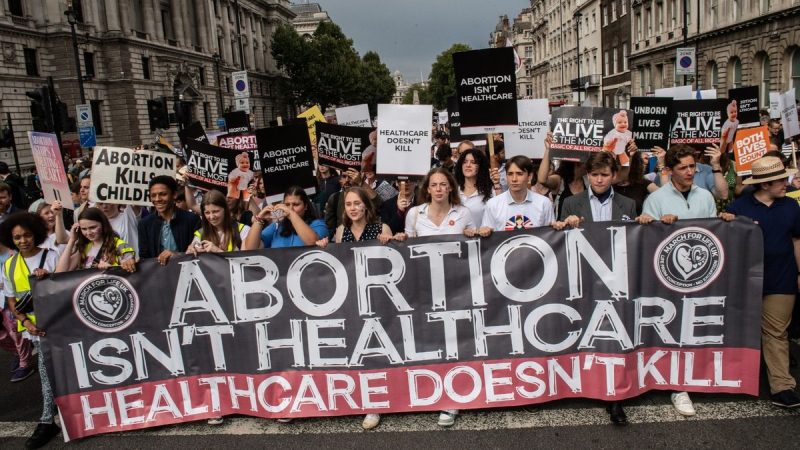
The conviction of 64-year-old Livia Tossici-Bolt for violating a UK abortion clinic buffer zone has ignited a heated transatlantic debate about free speech. Tossici-Bolt, a woman described in the *Daily Mail* as having ‘hair in a grey bob with a small gold cross around her neck,’ was found guilty for standing outside a Bournemouth clinic with a sign offering to talk to those entering. Her case has sparked outrage among some, including the Trump administration, who view it as a suppression of free expression.
Supporters argue Tossici-Bolt’s actions were respectful and simply offered an alternative viewpoint on abortion, a right they believe should be protected in a free society. Melanie McDonagh in *The Spectator* echoes this sentiment, emphasizing Tossici-Bolt’s non-aggressive approach. However, critics like Catherine Bennett in *The Observer* counter that this portrayal is misleading, arguing that Tossici-Bolt’s actions were not an act of brave dissent but rather a violation of regulations designed to protect patients from harassment.
The debate extends beyond the specifics of Tossici-Bolt’s case. US Vice President J.D. Vance cited this and similar cases as evidence of a broader retreat of free speech in the West. This claim, while provocative, is met with counterarguments that highlight the need to balance free speech with the right to access healthcare safely and without intimidation. Before buffer zones were established, women entering clinics frequently faced various forms of coercion, ranging from physical obstruction to psychological distress, as reported in *The Standard*.
The *Daily Mail*, while acknowledging the pain of choosing abortion, also highlights the delicate balance between protecting vulnerable individuals and upholding free speech principles. The paper questions whether the UK has struck the right balance, particularly given existing concerns about cancel culture and other forms of censorship. The conviction of a seemingly polite and non-confrontational individual for simply holding a sign raises concerns about the broader implications for free expression in the UK.
The Tossici-Bolt case underscores a complex dilemma: how to reconcile the fundamental right to free speech with the equally important right to access healthcare without fear of harassment or intimidation. The debate continues, forcing us to consider the nuances of free speech in the context of sensitive issues and the importance of protecting vulnerable populations.










